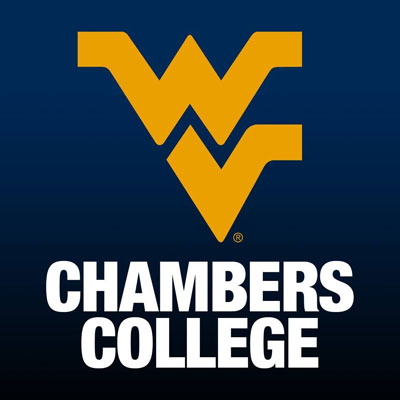Between retirements, promotions and other changes, the WVU College of Business and Economics has said farewell to some B&E staples over the past few years. But with bittersweet goodbyes, new doors open for fresh hellos.
In January 2017, B&E said an energetic hello to the new Assistant Dean for Undergraduate Programs, Rebel Smith. A straight shooter with an outgoing personality, she came in and instantly began to shake things up in terms of recruitment, enrollment, retention and advising.
With more than 20 years of experience, Smith began her adventure in higher education at the University of Arkansas, where she earned both her graduate degree in counseling and doctorate in higher education administration. That’s where she also jumpstarted and built a vibrant career. She served as the associate director of admissions for the Sam M. Walton Graduate School of Business for six years and was promoted to director of recruitment and enrollment management for Online and Distance Education Programs for University of Arkansas Global Campus.
Today and throughout the summer, Smith and the B&E advising staff are implementing new strategies and presenting new messages to students and parents of the WVU Class of 2021 during New Student Orientation. Read more about her role as a catalyst for the advancement of B&E and the future of the business world – our students – in the Q&A below.
-
Now that you’ve been here for six months, how would you describe your experience at WVU, and specifically within the College of B&E, so far?
Morgantown is beautiful. I’ve been pleasantly surprised by the beautiful landscape. Here on campus, I’ve met with a lot of the key players, learning the ropes and figuring out who does what and who I need to connect with in order to get things done for the College. Everyone has been incredibly welcoming. They’ve been extremely open to listening to new ideas and maybe some concepts a little bit outside the box. I’ve been extremely pleased with the reception.
-
When you were deciding your educational and career path, why did you decide to go into psychology and counseling?
I took a psychology class in high school, and I just fell in love with it. My bachelor’s is in psychology, and I loved that curriculum completely even knowing that I was going to have to go to graduate school. There weren’t career opportunities for somebody with an undergraduate degree in psychology. I began looking at master’s programs when we were living in Arkansas, and I found the counseling program.
When I was doing my master’s degree, I did an internship at student support services on campus. Student support services works with students who are first generation, low-income or students with disabilities. I loved every second of it. I’m a first-generation, low-income student, so working with that group of students and really helping them with adjustment and dealing with this very foreign place was incredibly rewarding and fulfilling. When I finished my master’s, there weren’t any positions available on campus, so I had to leave campus to find work and I realized when I left campus that I just wasn’t happy anymore. I came back to campus, and I still feel like I’m very much applying my earlier education. <
-
What do you like most about working in higher education?
The fact that it changes people’s lives. Higher education provides opportunity not only for the student but for the student’s family. I very much like being a part of that and helping students find their passion, then helping them navigate the obstacles and hurdles and obviously getting that degree, which is the ultimate goal. So, it’s incredibly rewarding and fulfilling.
-
When it comes to recruitment and student development, how would you describe your strategy?
I’ve always gone in very friendly, open and welcoming with a “let’s talk” attitude. I very much just like to talk to people. I don’t like to seem unapproachable. I don’t like to present facts, in a very stiff and formal manner. So, I just like to talk – let’s talk about opportunity, let’s see what we can do here. I like to be very encouraging and supportive, and I always like to tell students and parents right now that it isn’t going to be a straight path. There are going to be some curves and some bumps maybe and some detours, but ultimately, as long as we all keep the end goal in mind, it can be a very successful journey.
-
What are some goals you have set for B&E and Undergraduate Programs and Advising?
One of the biggest reasons I felt like I was selected for the position is my expertise in enrollment management and growth. B&E is a smaller business school. For a university this size, our business school should be larger. So, my first goal is to grow the College, which is incredibly challenging in today’s times. The population of West Virginia is declining so we need more and more out-of-state students, but out-of-state tuition anywhere can present some challenges. We’re focusing on ways that we can still grow enrollment and be able to work around some of those roadblocks. Looking at the transfer population, WVU doesn’t have a large population of transfer students, so that’s definitely an area that we can grow.
And then one of the things that we’ve done is change the admission criteria at B&E. It’s a little bit easier to understand, especially to first-generation students and their parents. So, we’ve simplified the admissions process, and it also allows more students who we feel could be successful to start in B&E. Previously we looked at composite ACT scores and now we’re looking at math scores in particular. That has resulted in allowing more students to start directly into the College academically instead of as pre-business students, in turn allowing them to start using our resources immediately.

